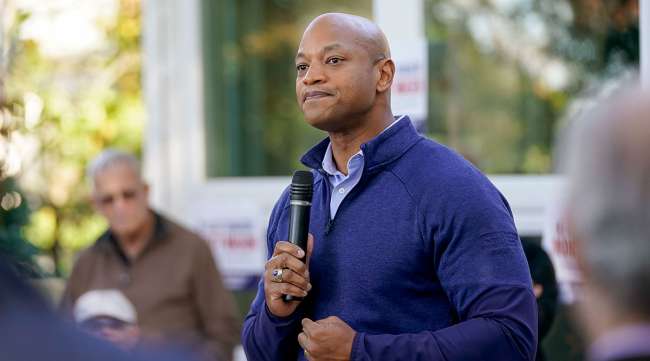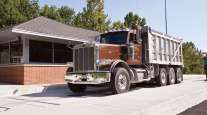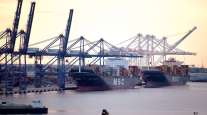Baltimore Sun
Maryland Governor Commits to Labor, Infrastructure Projects

[Stay on top of transportation news: Get TTNews in your inbox.]
Flanked by members of President Joe Biden’s administration, Maryland Gov. Wes Moore on Nov. 13 announced Baltimore’s commitment to its designation as one of the nation’s five Workforce Hubs through investments in career and technical education and training for local workers.
An initiative of the Biden administration, Workforce Hubs are cities focused on providing people who have historically had less economic opportunity, like women and people of color, with training and services to help them access well-paying union jobs.
“We are now moving in a way that’s actually focused on partnership, and that means investing,” Moore, a Democrat, explained at a news conference held at Carver Vocational Technical High School. “Investing in things like the Frederick Douglass Tunnel; investing in things like the Port of Baltimore; investing in broadband and Wi-Fi; and investing in mass transit and, yes, that includes the Red Line right here in Baltimore.”
Biden, a Democrat, has assigned billions of dollars to Maryland infrastructure projects, including $4.7 billion for the Frederick Douglass Tunnel rail project that is intended to replace the 150-year-old Baltimore and Potomac Tunnel.
Amtrak will invest $5 million to recruit and train apprentices and provide them with support services to help them overcome barriers, like child care and transportation. A portion of this funding will also go to Baltimore City Public Schools to provide technical and skills-based education.
According to Mitch Landrieu, a senior adviser to Biden, the Frederick Douglass Tunnel is estimated to create approximately 30,000 jobs.
Check out Transport Topics' updated Top 50 list of the largest freight transportation companies in the world and explore how these companies are re-evaluating their supply chains. Tune in above or by going to RoadSigns.ttnews.com.
Sen. Chris Van Hollen (D-Md.) called the federal investments in Maryland “historic,” noting that $376 million in grant funding will go to Baltimore’s water infrastructure, and that the state will continue to receive grant money and other funding through the Infrastructure Modernization Act over the next five years.
“We’re here today because we know that when we’re making those kind of investments in infrastructure, we need a skilled workforce to accompany that, because if you make the investments but you don’t have the skills to turn those investments into reality, then you really haven’t gotten that far yet,” Van Hollen said Nov. 13.
Moore emphasized the importance of working alongside the Biden administration, which dubbed Maryland as one of five Workforce Hubs in May.
“You’re not going to create a workforce system in President Biden’s America without making sure unions are at the table,” Acting Department of Labor Secretary Julie Su said in a telephone interview with The Baltimore Sun.
Su explained that the objective of naming the Workforce Hubs is to center people who have historically been left out while working in partnership with state and local leaders to address the specific needs of the state.
“We want to have solutions that are driven by partnerships with people on the ground,” Su said.
Want more news? Listen to today's daily briefing above or go here for more info
Nicholas Cummings, a Carver alumnus, called the Nov. 13 announcement a “renaissance of opportunity” for working families.
“Today, we are pointing to pathways to apprenticeships, training and valuable careers — again, opportunities linked to family-sustaining wages,” he said. “Opportunities in Baltimore still exist: opportunities to earn a great wage, opportunities to receive ... health care, opportunities to move into the middle class — and the opportunities don’t stop there.”
Sonja Santelises, the CEO of Baltimore City Public Schools, said that the Workforce Hub Initiative is already being felt in the city’s public vocational schools.
Santelises said that she had spoken with a student early Monday who said that classes he is able to take at Carver are what make him want to show up to school, because he knows that he can apply the skills he’s learning directly to a job.
“I just want everyone to know that it’s also the leadership in our state that is making this possible,” Santelises said.
Distributed by Tribune Content Agency, LLC





